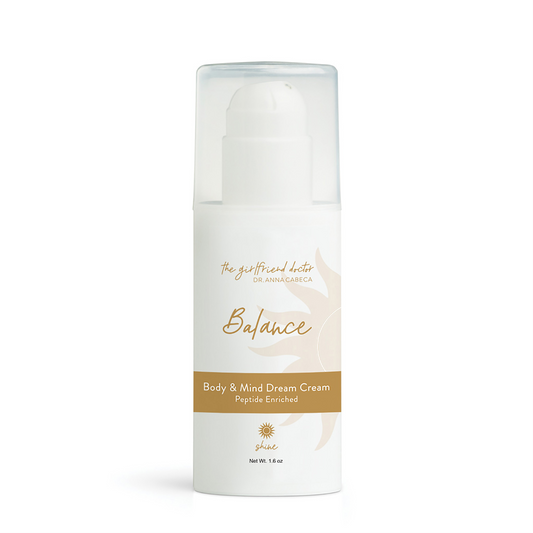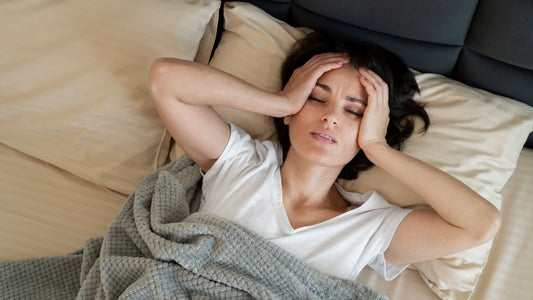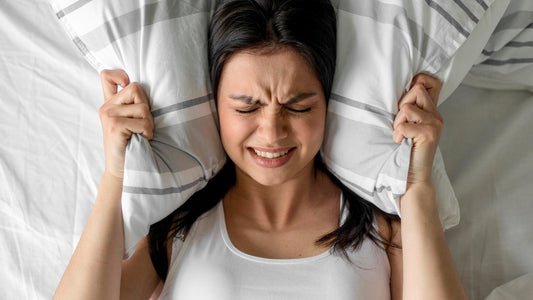One of our best anti-aging activities is sleep.
This has been the lifestyle habit that I have had the most difficulty with throughout my life. I always joked that I am the perfect OB/GYN because sleep is always a bit elusive! It is a working practice of mine to try and get at least 7 hours of sleep per night.
This article shares some excellent points about our sleepless culture and some fine meditative exercises to enhance our experience. The article was written by Mindvalley Academy, please see additional information on this wonderful online school at the bottom of the page. And please comment at the end with your experience with these exercises as well as your own personal strategies to enhance one’s sleep.
The Ultimate Cure for Insomnia: It’s Not What You Think
Insomnia is shockingly awful. There is nothing more upsetting than lying awake all night, trying to get healthy sleep, overthinking things, and stumbling out of bed in a foul funk when your alarm finally goes off. Having this sleep condition can make your daily life feel like a living hell and it can contribute to both physical and mental health problems.
But did you know that there is a perfectly easy, free, and successful cure right at your fingertips?
STOP WHAT YOU’RE DOING
Yes, you could pop a sleeping pill and fall asleep in a matter of minutes. But did you know what sleeping pills can do to you? Sleeping pills are very harmful to your health and cause more harm than good. If you are taking them, look into safely tapering off under medical supervision. You can’t just stop sleeping pills cold turkey or you will suffer from withdrawals which can be life-threatening (WebMD, 2017). But you do need to stop. Why?
Because sleeping pills may be very effective in getting you to sleep, but they carry a whole host of bad side effects. Expect to suffer from intense physical symptoms, at least for the first few weeks that you take a new sleep med (WebMD, 2017). You may experience poor motor function, lack of balance and coordination, diarrhea, dry mouth, mental fog, tingling in your extremities, heart palpitations, hot and cold sweats, dizziness, and many other unpleasant side effects (WebMD, 2017). Also expect to wake up each morning with a sort of hangover and difficulty waking up fully. Sleeping pills may bring on deep sleep, but it is not healthy, natural sleep, so you wake up still feeling unrested (WebMD, 2017).
These are just surface side effects. What really goes on under the surface? To understand the hidden effects of sleeping pills, you first need to understand how sleeping pills work. They essentially rewire your brain, using neurochemicals to induce sleep. Most notably, they act on the chemicals serotonin and GABA. They work to calm the nervous system and will affect every part of your body as they sedate you.
Changing your brain chemistry is a big deal
This may not seem like a big deal, until you realize that sleeping pills are literally changing your nervous system’s structure and your brain chemistry. They are changing you. Their insidious spread throughout your cells and tissues leads to addiction and severe withdrawal when you try to cease taking the meds. You start to get used to them and build tolerance, as well, leading you to need higher and higher doses of the drug in order to feel its effects (HelpGuide, 2017).
Sleeping meds can mask disorders that are causing your insomnia, as well. They can cause you to start blacking out and engaging in activities like driving or eating while you are not fully conscious (HelpGuide, 2017). This means that they can cause you to become a zombie and put your own life at risk.
Sleeping meds can also build up in your system, leading to overdose. It is easy to take too much by accident. A study by Dr. Kripke confirmed that people who take sleeping pills had a four and a half times greater mortality rate than people who did not take sleeping pills in the same two-year period (Kripke, 2013). Dr. Kripke also noticed a correlation between cancer and sleeping pill use (Kripke, 2013). Scary, right?
Also scary is the fact that sleeping pills can interact dangerously with other drugs, most notably alcohol (HelpGuide, 2017). You could take your pill and die in your sleep. You really don’t want to be taking something that can kill you so easily, right?
DON’T IGNORE THE PROBLEM
Simply ignoring your insomnia or other sleep problems and waiting for them to go away on their own can also be very bad. Letting these problems continue without treatment will rapidly take a serious toll on your body. Let’s explore what lack of sleep does to you.
For one thing, you won’t be able to process stress, something that sleep helps you do, so you will feel anxious and depressed and put unnecessary strain on your heart (National Sleep Foundation, 2017). Your kidneys will quickly become exhausted with filtering cortisol out of your blood and pumping adrenaline in response to your stress levels (National Sleep Foundation, 2017).
You also won’t be able to process your moods as well. Sleep helps you process moods; it is believed that this is the purpose of dreams. So if you don’t sleep deeply, you will feel irritable and you will suffer from unresolved emotional issues. Your mood health will inevitably suffer (National Sleep Foundation, 2017).
Your memory will get messed up. Processing memories is another crucial function of sleep (National Sleep Foundation, 2017). When you don’t sleep, your ability to remember things suffers.
You won’t have any energy or motivation (National Sleep Foundation, 2017). Sleep helps refresh and re-energize the body and mind. Without sleep, your body can’t function as well, nor can your mind. Your brain and your other organs become tired and start to fail (National Sleep Foundation, 2017). You can succumb to serious illness or even death if you let your sleep issues persist (National Sleep Foundation, 2017).
Oh, and guess what else? Not sleeping itself can make you feel stressed and worried before bedtime, causing yet more insomnia (National Sleep Foundation, 2017). It’s basically a vicious cycle that you really need to end before it really hurts you.
The True Cure for Insomnia
So now that you know what not to do for your insomnia, you’re probably dying to know what you can do. The good news is, there is a far better solution for sleep issues than drugs or suffering. The solution that I’m talking about is meditation.
Meditation is a viable cure for insomnia and other sleep issues.
Don’t believe me? A recent study by Harvard Medical School proved that mindfulness meditation is a very successful means of bringing on deep slumber (Corliss, 2015). Meditation involving breathing and concentration helps shut down your mind, calm your nerves, and bring on sleep (Corliss, 2015).
In addition, sometimes insomnia is caused by stress. Meditating helps you get in touch with your inner self. When you’re in touch with yourself, you can work out unresolved issues that linger in your psyche. Then you can sleep more deeply, unperturbed by stressful events that happened during the previous day or even farther back in your past (Corliss, 2015).
The best part? Meditation carries no side effects. You literally won’t experience any negative or unpleasant issues as a result of meditation. You will simply feel much better as you get the rest that you need and open your mind’s inner chambers.
How to Perform Meditation for Sleep
So how do you go about this miracle cure for your insomnia? The best way to start is to establish a solid bedtime routine that never varies. Incorporate meditation into this routine. Once you turn the lights out and lie down comfortably, you can enter meditation. Do this every night for a swift, painless glide into deep sleep.
You can listen to a guided meditation designed for sleep if you desire. But the simplest meditation is one that you can perform by yourself. Lay in a comfortable position, and make sure that your environment is perfect for sleep. Set the thermostat the way that you want, use the sheets that feel delightful on your skin, and remove all distractions such as phones or TV. Now, lie very still and start to focus on your breathing. Feel your breath coming in through your nostrils and then out through your throat. Focus on this for a while, counting up to ten breaths.
PROGRESSIVE MUSCLE RELAXATION
Next, start progressive muscle relaxation. This is where you turn your mind to each of your body parts without letting yourself think about anything else. It’s an exercise in intense focus which will help you turn your mind off, thus enabling yourself to sleep well. Start with your right hand. Draw awareness to each part of your hand, move up your arm, focus on your shoulder, move down the side of your body to your foot, travel up your left side, reach your left hand, then start focusing on your scalp and facial muscles. Tense up each body part and then relax it. Make the rounds around your body twice, until you are truly and deeply relaxed. Intrusive thoughts will try to break your concentration, but simply accept those thoughts and don’t pursue them. Only embrace the activity that you are currently engaged in.
As you start to relax fully, gently start to tell yourself to go to sleep. Right now, thanks to the progressive muscle relaxation, you are in a hypnotic state. This state allows you to speak to your subconscious. Your inner mind will actually listen. Just speak to your mind, and tell it to sleep. You will quickly find sleep washing over.
GO ON A LITERAL JOURNEY INTO SLEEP

Another meditation that really works is envisioning a literal journey into sleep. Imagine yourself traversing a forest or beach or some other serene place where your heart is happy. As you walk further into this special place, understand that you are walking into sleep.
Focus on envisioning your surroundings rather than your thoughts and worries. When you exhale, imagine yourself releasing a huge cloud of stress. When you breathe in, imagine that you are pulling in calm and peace. You will quickly relax and eventually drop into sleep.
The Takeaway From This Article
The takeaway from all of this is that meditation is your solution to insomnia. You can say good-bye to suffering from lack of sleep as you embrace meditation into your nightly routine. Sleep will start to come easily and you will reap the health benefits of good sleep as a result. Life will become so much easier as your body recuperates and processes stress while you get good sleep. Just please get off of sleeping pills and don’t ignore the fact that you have a problem with sleep.
Mind Valley Academy has some free courses you can try, even one on meditation. Check that out here.
Other Good Information on Getting a Better Night’s Sleep
You can also check out my additional tips on sleep and on how the light/dark cycle is so important to your circadian rhythm and ability to sleep. This article also has other suggestions relating to improving your sleep.
About Mind Valley Academy.
Founded in 2003 by Vishen Lakhiani, Mindvalley Academy is an online school for all the things regular schooling forget to teach you. They provide world-class courses from the world’s top personal growth authors and brands to allow you to create remarkable transformations in all areas of your life.
Learn more at www.MindvalleyAcademy.com.
Resources
Corliss, J. (2015). Mindfulness Meditation Helps Fight Insomnia, Improves Sleep. Harvard Health Publications. Retrieved from http://www.health.harvard.edu/blog/mindfulness-meditation-helps-fight-insomnia-improves-sleep-201502187726.
HelpGuide. (2017). Sleeping Pills & Natural Sleep Aids. Retrieved from https://www.helpguide.org/articles/sleep/sleeping-pills-and-natural-sleep-aids.htm.
Kripke, D. (2013). The Dark Side of Sleeping Pills. Retrieved from http://www.darksideofsleepingpills.com/.
National Sleep Foundation. (2017). Insomnia & You. Retrieved from https://sleepfoundation.org/insomnia/content/insomnia-you.
WebMD. (2017). Understanding the Side Effects of Sleeping Pills. Retrieved from http://www.webmd.com/sleep-disorders/guide/understanding-the-side-effects-of-sleeping-pills#1.







